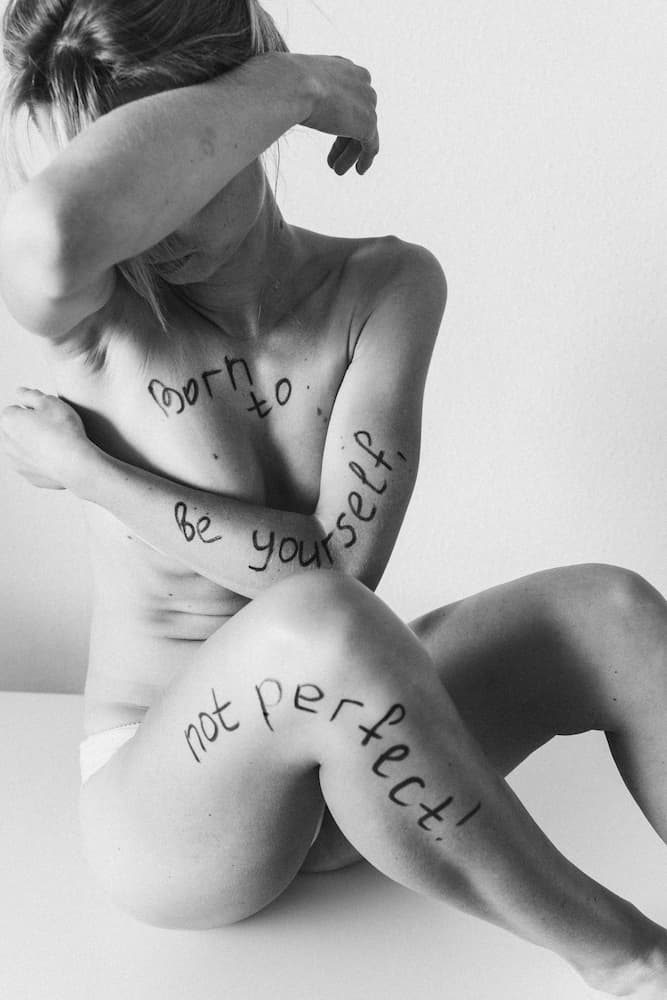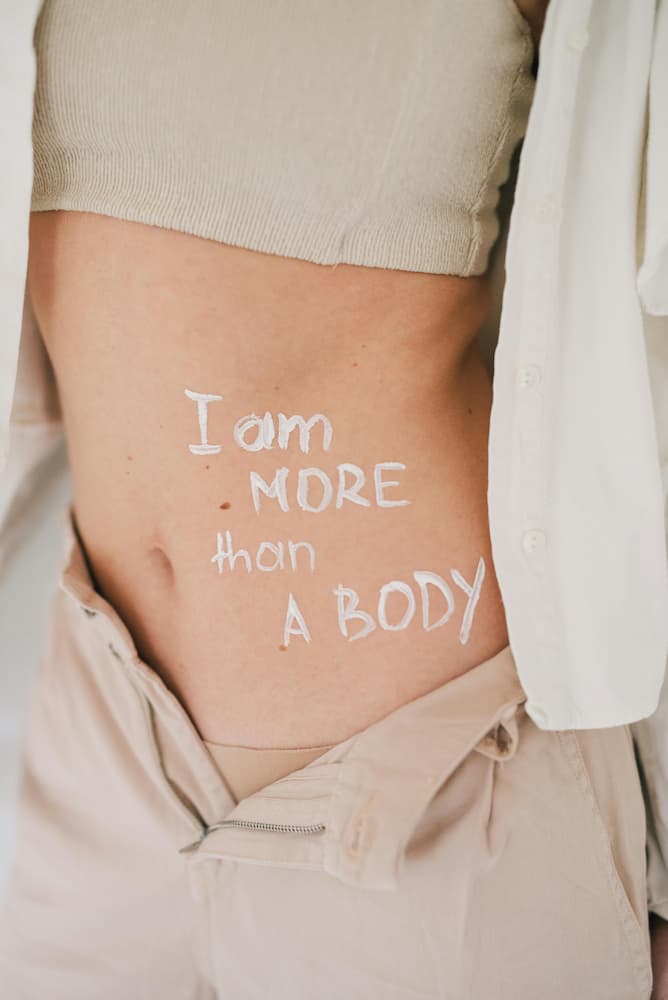For many people, Thanksgiving is about connection, gratitude, and celebration. But for others, it’s also one of the most stressful days of the year — especially if you struggle with negative body image, food guilt, or complicated feelings about eating.
The mix of comments about bodies, “good” and “bad” foods, and pressure to appear happy or grateful can make Thanksgiving feel less like a holiday and more like a test of endurance. If this sounds familiar, you’re not broken for feeling this way.
Let’s unpack why holidays can be so triggering around food and body image, how cultural messages play into it, and what it looks like to care for yourself differently — from a feminist, trauma-informed perspective.
Begin Feminist TherapyWhy Does Thanksgiving Trigger So Much Food and Body Anxiety?
Thanksgiving anxiety isn’t just about the food. It’s about everything that comes with it.
Thanksgiving often stirs up a mix of emotions: family dynamics, old patterns, social pressure, and years of cultural conditioning about what it means to “be good” or “deserve” rest and pleasure.
From a trauma and feminist therapy informed lens, food is rarely just food. It’s tied to belonging, control, and self-worth. When we’ve grown up in systems that moralize eating or idealize certain body types, a holiday centered around food can feel overwhelming.
You might notice:
- Feeling anxious before the meal, already thinking about how much you “should” or “shouldn’t” eat
- Comparing your plate or your body to others
- Feeling guilt or shame afterward, even if you enjoyed yourself
- Feeling on edge about comments from relatives about weight, diet, or appearance
These are not personal failings. They’re symptoms of living in a culture that teaches us to distrust our bodies — especially for women and people socialized as women, who are taught to see control as virtue and hunger as weakness.

Why So Many Women Feel Triggered Around Food and Body Image
Diet culture is relentless — and it thrives on shame.
From a feminist therapy perspective, the pressure to control your body is not about health. It’s about social conditioning. When women spend their energy worrying about food, size, and appearance, they’re less likely to channel that energy into their creativity, power, or voice.
You’ve likely internalized years of mixed messages:
- “Eat intuitively… but not too much.”
- “Love yourself… but also, here’s a ‘body reset’ plan.”
- “Enjoy the holidays… but make sure you ‘bounce back’ after.”
It’s exhausting — and it keeps you stuck in a cycle of striving and self-surveillance.
So if Thanksgiving feels complicated, it’s not because you lack discipline or self-acceptance. It’s because you’ve been taught since you were born that your worth is up for debate, and food is one of the easiest battlegrounds for that insecurity.
Begin TherapyHow Trauma Can Amplify Body Image and Food Stress
If you’ve experienced trauma — whether emotional neglect, criticism, or experiences that left you feeling powerless — food and body image can become coping tools.
Perfectionism around food or body control can serve as a protective strategy. It can create a temporary sense of order or safety when life feels unpredictable.
But during the holidays, those protective parts can go into overdrive. You might find yourself:
- Feeling triggered by comments about appearance
- Wanting to restrict before or after the meal
- Feeling ashamed for eating foods you usually avoid
- Comparing yourself to old photos or relatives
It’s your nervous system trying to protect you from shame, rejection, or loss of control — even if the threat isn’t physical. Trauma therapy helps people recognize these patterns as protective, not pathological. Once you understand where they come from, you can meet them with compassion instead of judgment.
What Can You Do When You Feel Body Anxiety at Thanksgiving?
Here are some gentle, practical ways to help yourself stay grounded and compassionate — especially when old patterns start to flare up.
1. Set Boundaries Beforehand
If you know certain topics or comments tend to spike your anxiety, it’s okay to plan ahead. You might tell a family member, “I’d rather not talk about diets or weight this year.” Or you can change the subject when someone brings it up.
Boundaries don’t have to be harsh — they can be quiet acts of self-protection.
2. Practice Body Neutrality
You don’t have to love your body to stop fighting with it. Try to focus on what your body does for you, rather than how it looks. It digests food, hugs loved ones, keeps you moving through the world. Gratitude for your body’s function can soften the harshness of how you see it.
3. Remember That Food Is Not a Moral Test
Food doesn’t have moral value. You are not “good” for eating salad or “bad” for eating pie. Your worth doesn’t fluctuate based on what’s on your plate. The more you remind yourself of that, the easier it becomes to listen to your body’s cues — hunger, fullness, satisfaction — instead of outside rules.
4. Notice the Inner Voice — and Soften It
If you start hearing your inner critic (“I shouldn’t have eaten that”), pause. Ask where that voice learned those rules. Who taught you that pleasure needed to be earned? Often, that voice is an internalized part trying to protect you from judgment. You can thank it for trying to help — and gently let yourself eat without apology.
5. Have an Exit Plan
If things get tense, it’s okay to step outside, take a short walk, or go into another room. Deep breathing, grounding with your senses, or texting a friend can help your body reset.
Remember: you’re allowed to take care of yourself — even at a holiday centered around togetherness.
How to Reclaim Pleasure and Presence Around Food
From a feminist therapy perspective, reclaiming pleasure is an act of resistance.
When you let yourself enjoy food without shame, you’re pushing back against a culture that profits from your insecurity. When you stop apologizing for your body, you’re reclaiming time, energy, and peace.
The truth is: your body has always been worthy — before and after every diet, through every holiday meal, at every size.
Pleasure, satisfaction, and fullness are not weaknesses. They’re part of what makes you human.

How Therapy Can Help You Heal Your Relationship With Food and Your Body
Therapy for body image and food stress isn’t about forcing positivity. It’s about untangling the beliefs that made you feel unsafe in your body in the first place.
Through approaches like IFS Therapy and EMDR Therapy, we can explore how perfectionism, control, or shame developed as survival strategies — and help your nervous system release the fear underneath them.
You can learn to:
- Build compassion toward the parts of you that feel unworthy
- Recognize how trauma and culture shaped your relationship with food
- Feel safer connecting to hunger, fullness, and pleasure
- Set boundaries around body talk and diet culture
- Begin to feel at home in your body again
Healing from negative body image isn’t about trying harder. It’s about unlearning the systems that taught you your body was a problem to fix.
Final Thoughts: You Deserve to Feel at Peace in Your Body
If Thanksgiving feels complicated, give yourself grace. You’re not overreacting — you’re responding to years of messaging that made you feel like you had to earn your worth.
This year, try something different. Instead of controlling, restricting, or performing gratitude, practice gentleness. Take small steps toward presence. Notice the warmth of a meal shared with people you love, the smell of something cooking, or the simple relief of resting after a long year.
You don’t need to earn your place at the table. You already belong there.
If you’re looking for therapy for body image or feminist therapy in Denver, I help women and high-achieving adults find freedom from self-criticism, food guilt, and perfectionism. You can learn to reconnect with your body in a way that feels safe, compassionate, and authentic — not ruled by shame or control. Reach out for a free consultation to begin therapy for body image today.
Schedule A Free Consult
Emma Kobil is a trauma therapist practicing online with feminist women and thoughtful couples in Colorado and Florida. Her philosophically informed therapeutic approach focuses on helping creative and perfectionist women and couples heal. Learn more about Emma, or schedule an appointment, at mindfulcounselingdenver.com.









